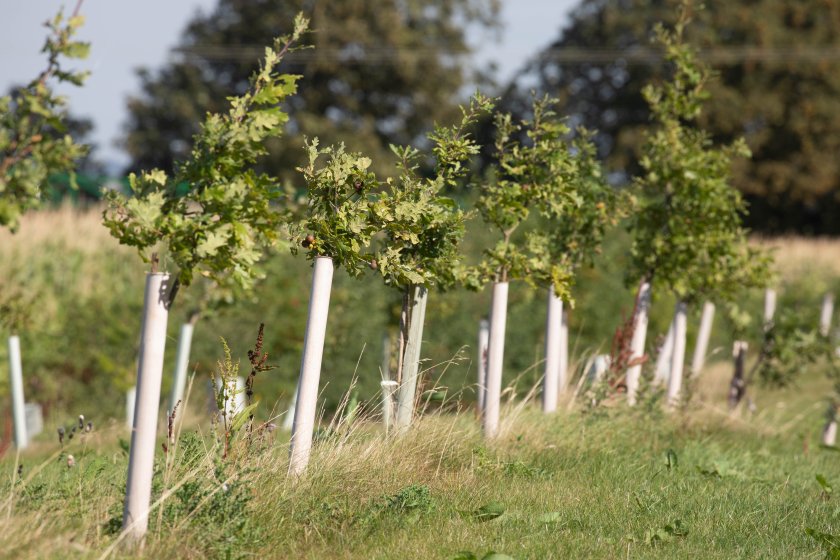
*UPDATE 2 March: Due to exceptionally high demand, Severn Trent's forest creation fund has now closed*
Severn Trent has extended its forest creation fund offer to give farmers and landowners in the Midlands the chance to plant woodlands on smaller sites of 2.2 to 5 acres.
The scheme's extension, for parcels of land over 10 acres, aims to help enhance biodiversity and soil health on unproductive land in the water firm's catchment areas.
Severn Trent covers the planning and sourcing of trees, before the farmer or landowner plants them.
They then receive annual payments of £800 per acre to contribute to maintenance for 10 years.
Miranda De Freston, Severn Trent environmental manager said: “It’s important for us to prioritise low grade land for tree planting, which is why this scheme focuses on enhancing marginal land, or that of reduced productivity.”
She explained that this ‘small acre’ offer runs alongside the main tree planting offer, which is for larger areas of land, over 10 acres.
The scheme also offers an annual premium payment of £200/ha for the first 10 years, for sites over 8ha in size.
It covers all aspects of planning, planting, management, and 35 years of maintenance, while the farmer or landowner retains ownership of the land.
Ms De Freston said: “We’ll take on all the carbon code paperwork. This covers the registration, validation and verification of the woodland, when normally you’d need to employ an agent to do this."
Severn Trent will also set each site up with a Biodiversity Net Gain (BNG) baseline assessment, which will help landowners attain biodiversity credits.
These could be worth approximately £24,710/ha of new woodland created, for 30 years, subject to purchaser's requirements.
After the 35 year management period, the water company will hand back the carbon credits to the landowner.
These have the potential to be worth £15,434/ha after the 35-year period (based on current BEIS values).
Severn Trent is also open to working with farmers and landowners to develop a more flexible tree planting plan.
Ms De Freston said: “For instance, we can price match labour costs, if landowners have in-house staff, or we can consider alternative planting techniques, such as agroforestry, if on a large enough scale."
